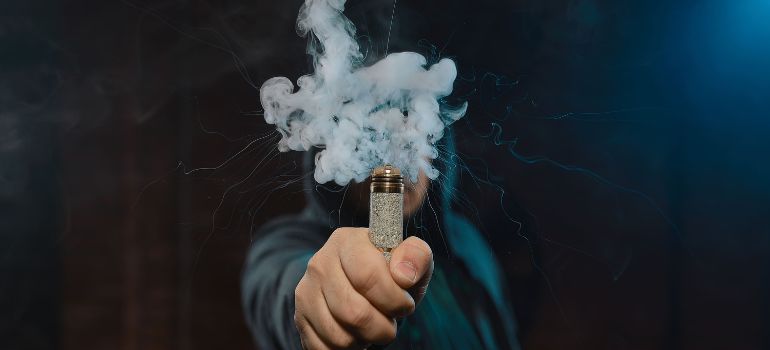In recent years, vaping has become increasingly popular among young individuals. While vaping is a personal choice for many adults, it raises a significant concern when it comes to underage individuals. This article will explore the topic of “how to buy a vape underage” by delving into the legal implications, risks, and the role of parents, guardians, and retailers. It will also provide insights into prevention and support mechanisms for curbing underage vaping.
Table of Contents
Toggle- Understanding the Legal Implications
- Risks and Concerns
- Parental and Guardian Role
- Retailer Responsibility
- Tips for Preventing Underage Vaping
- Alternative Choices
- Community and School Initiatives
- Seeking Professional Help
- Real-Life Scenarios
- Conclusion
- FAQs (Frequently Asked Questions)
- 1. What are the health risks associated with underage vaping?
- 2. What can parents and guardians do to prevent their children from vaping?
- 3. What are the consequences for retailers who sell vaping products to minors?
- 4. Are there alternative choices to vaping for young individuals?
- 5. How can schools and community organizations help prevent underage vaping?
- Related posts:
Understanding the Legal Implications
Laws and Regulations Regarding Underage Vaping
The sale and possession of vaping products by minors are strictly regulated in most places. Laws vary by jurisdiction, but the majority of regions have set a legal age for purchasing and using vaping products. These laws are in place to protect young individuals from the potential health risks associated with vaping.
Consequences of Violating These Laws
Purchasing a vape as a minor can lead to various legal consequences. Retailers who sell vaping products to underage customers may face fines or even the suspension of their business licenses. Minors caught with vaping devices could face penalties, community service, or mandatory education programs aimed at preventing substance abuse.
Risks and Concerns
Health Risks Associated with Vaping
Vaping is not risk-free. Research has shown that vaping can have detrimental effects on lung health, and it may even serve as a gateway to more harmful habits, such as smoking. Underage individuals are particularly vulnerable to the health risks associated with vaping because their bodies and brains are still developing.

Social and Ethical Concerns
Beyond the health risks, vaping among minors can lead to social and ethical concerns. It can affect peer relationships and create conflicts within families. Moreover, it raises ethical questions about the responsibility of adults in discouraging underage vaping.
Parental and Guardian Role
Responsibilities of Parents and Guardians
Parents and guardians play a crucial role in preventing underage vaping. They must educate themselves about vaping and its risks to effectively communicate with their children. It is essential to be proactive in discussing the dangers of vaping and the importance of making healthy choices.
Open Communication with Minors about Vaping
Maintaining an open and non-judgmental dialogue with minors is vital. Encouraging them to ask questions and express their concerns can help build trust and ensure they make informed decisions regarding vaping.
Retailer Responsibility
Ensuring Age Verification
Retailers have a legal and moral obligation to verify the age of their customers when selling vaping products. This responsibility includes training employees to check IDs and ensure that they do not sell to minors.
Consequences for Selling to Minors
Selling vaping products to underage customers can lead to severe consequences for retailers. Fines, legal action, and damage to their reputation are just a few of the possible outcomes. Retailers must prioritize compliance with age restrictions.
Tips for Preventing Underage Vaping
Educating Young Individuals
Educating young people about the risks of vaping is vital. Schools, community organizations, and parents can all contribute to spreading awareness about the dangers of vaping and the benefits of making healthier choices.
Monitoring and Support
Parents should monitor their children’s activities and behavior, seeking professional support if necessary. Early intervention can prevent underage vaping from becoming a long-term issue.
Alternative Choices
Encouraging Healthier Habits
Promoting healthier alternatives to vaping, such as sports, arts, or hobbies, can help divert the attention of young individuals away from vaping.
Providing Alternatives to Vaping
Supporting young people in finding alternative coping mechanisms for stress and peer pressure can reduce the temptation to vape.
Community and School Initiatives
Role of Schools and Community Organizations
Schools and community organizations can play a significant role in addressing underage vaping. They can create awareness programs and provide resources for both students and parents.
Creating Awareness and Prevention Programs
Prevention programs can help young individuals understand the consequences of vaping, both in terms of health and legality. These initiatives can contribute to a safer and healthier community.
Seeking Professional Help
When to Consult with Experts
If a minor is already involved in vaping, it is crucial to seek professional help. Behavioral therapists, counselors, and addiction specialists can provide support and guidance.
Support and Counseling Options
There are various support and counseling options available for individuals looking to quit vaping. These resources are essential in helping minors break free from addiction.
Real-Life Scenarios
Case Studies and Stories
Understanding the impact of underage vaping is best done through real-life scenarios and stories of those who have struggled with this issue. These stories can serve as powerful deterrents for young individuals.
Conclusion
In conclusion, addressing the topic of “how to buy a vape underage” is essential for the well-being of our youth. It is a collective responsibility that involves parents, guardians, retailers, schools, and the community. By working together to educate, prevent, and support young individuals, we can reduce the prevalence of underage vaping and its associated risks.
FAQs (Frequently Asked Questions)
1. What are the health risks associated with underage vaping?
Underage vaping can have serious health consequences, including damage to lung health and the potential for addiction to nicotine.
2. What can parents and guardians do to prevent their children from vaping?
Parents and guardians should educate themselves about vaping, maintain open communication, and monitor their children’s behavior.
3. What are the consequences for retailers who sell vaping products to minors?
Retailers who sell vaping products to minors can face fines, legal action, and damage to their reputation.
4. Are there alternative choices to vaping for young individuals?
Yes, encouraging healthier habits and providing alternatives like sports or hobbies can divert young individuals from vaping.
5. How can schools and community organizations help prevent underage vaping?
Schools and community organizations can create awareness and prevention programs to educate young people about the dangers of vaping.

